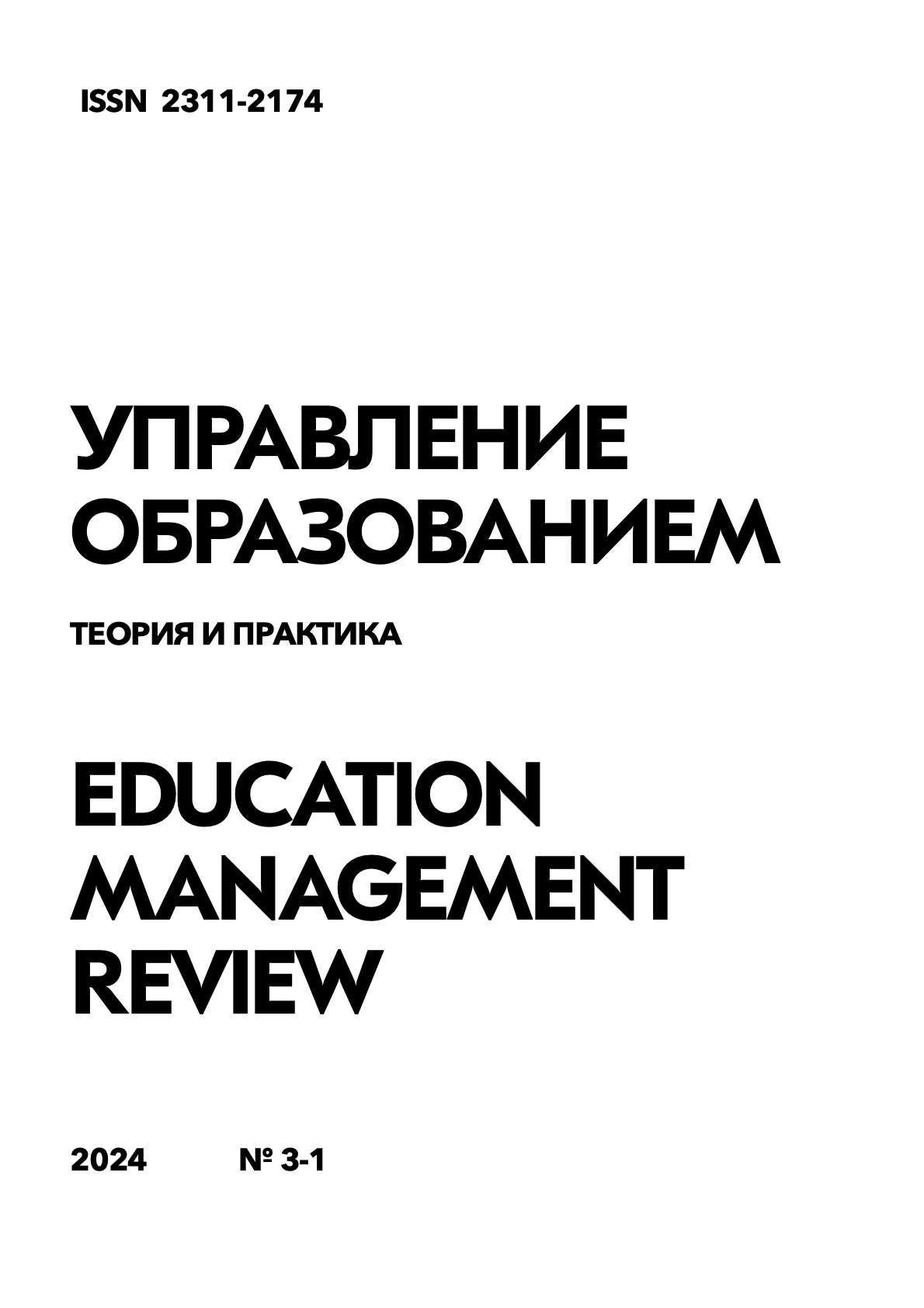The role of tutor support in the process of socio-cultural adaptation of foreign students in Russian universities
DOI:
https://doi.org/10.25726/b3130-9792-7683-oKeywords:
tutor support, international students, socio-cultural adaptation, internationalization of education, individualizationAbstract
In modern conditions of internationalization of higher education and the growing number of foreign students in Russian universities, the problem of their socio-cultural adaptation is becoming particularly relevant. One of the effective tools for facilitating adaptation is tutor support. This article examines the role of tutor support in the process of socio-cultural adaptation of foreign students in Russian universities. The purpose of the study is to identify the features and potential of tutor support as a factor of successful socio-cultural adaptation of foreign students at Russian universities. The research materials were scientific publications, statistical data, the results of surveys of 327 foreign students from 12 universities in 8 regions of Russia, as well as practical experience in implementing tutor programs at a number of universities (HSE, RUDN, KFU, etc.). The work uses methods of theoretical analysis, generalization, systematization, as well as empirical methods - questionnaires, interviews, analysis of business products (reports, portfolios). The results of the study indicate that tutor support, based on the principles of individualization, openness, flexibility, is an effective mechanism of socio-cultural adaptation, contributing to a faster and more effective entry of foreigners into a new educational and cultural environment. It was found that participation in tutor programs allows foreign students to master academic disciplines 34.7% faster, participate in extracurricular activities 42.5% more often, and integrate into the student community 28.2% easier compared to students who are not covered by tutor support. Various models and forms of tutor support have been identified, varying depending on the national composition of students, areas of training, and the university's resource capabilities. The results obtained can be used to improve the practices of socio-cultural adaptation of foreign students in Russian universities. Further research prospects are associated with the study of the long-term effects of tutor support, the development of innovative tutor technologies.
References
Авакова, О.В. К вопросу об адаптации иностранных студентов // Педагогика и просвещение. 2021. № 4. С. 54-61. DOI: 10.7256/2454-0676.2021.4.34876. EDN UBNNIU.
Анохина Т.Я., Панин Е.В. История и особенности обучения иностранных студентов в советских и российских вузах// Вестник РУДН. Серия: Теория языка. Семиотика. Семантика. 2014. №4. С. 134-143. EDN SXHINP.
Белоглазов А. А., Белоглазова, Л. Б., Антонова, Н. А., Исаева, М. Д. Проблема социокультурной адаптации иностранных студентов в условиях цифровизации образования // Вестник МГПУ. Серия: Информатика и информатизация образования. 2023. № 2(64). С. 73-82. DOI 10.25688/2072- 9014.2023.64.2.07. EDN ZANKNP.
Береговая О.А., Лопатина С.С., Отургашева Н.В. Тьюторское сопровождение как инструмент социокультурной адаптации иностранных студентов в российском вузе // Высшее образование в России. 2020. №1. С. 156-165
Боровкова Т.И. Тьюторское сопровождение научно-исследовательской работы студентов: Монография. - Владивосток: Дальневосточный федеральный университет, 2014 г. 148 с.
Голубева Н.М., Голованова А.А. Факторы адаптации студентов к образовательной среде вуза // Изв. Сарат. ун-та Нов. сер. Сер. Акмеология образования. Психология развития. 2014. №2. С. 125- 131. EDN STYAET.
Гончарова Е.В., Шевченко Т.С. Сопровождение индивидуальной образовательной траектории студентов // Вестник Нижневартовского государственного университета. 2012. № 2. С. 12-18.
Данилова Т.В., Лапыко Т.П., Тонких А.П. Взаимодействие субъектов педагогического процесса в образовательной среде вуза: Учебно-методическое пособие / New York: National Research, 2020. 136 с.
Зинковский А.В. Адаптация иностранных студентов к обучению в университетах России / Обучение иностранных студентов: состояние и перспективы. СПб. 1997. С. 37-43.
Иванова Т.Н., Музафарова Х.Ю. Адаптация иностранных студентов к образовательному пространству в вузе (эмпирический опыт исследований) // БГЖ. 2019. №4 (29). С. 66-70. DOI 10.26140/bgz3-2019-0804-0096. EDN FBOCKO.
Казанцева А.А. Организационно-педагогическое сопровождение процесса адаптации иностранных студентов в российском вузе // Письма в Эмиссия. Оффлайн. 2012. № 12. С. 1922. EDN RDEDBV.
Ковалева Т.М. Антропологический взгляд на современную дидактику: принцип индивидуализации и проблема субъективности [Текст] / Т.М. Ковалева // Педагогика. 2013. № 5. С. 51- 56.
Махмутова Е.В. Особенности интеграции иностранных студентов в российское образовательное пространство // Власть. 2020. №1. С. 77-84.
Самохвалова А.Г., Дмитрук Л.А. Коммуникативные трудности межкультурного общения китайских и российских студентов // Ярославский педагогический вестник. 2019. № 4(109). С. 86-94. DOI: https://doi. org/10.24411/1813-145X-2019-10456
Шипилова М.А. Межкультурная коммуникация и освоение культуры в процессе социокультурной адаптации иностранцев в принимающих обществах // Общество: философия, история, культура. - 2023. - №1 (105). С. 120-126. DOI 10.24158/fik.2023.1.18. EDN VPLVGM.
Яшина Е. А., Яшина Т.К. Особенности адаптации иностранных студентов в первые годы обучения в российском вузе // Наука и Образование. 2023. Т. 6. № 2. EDN IMMZCS.




